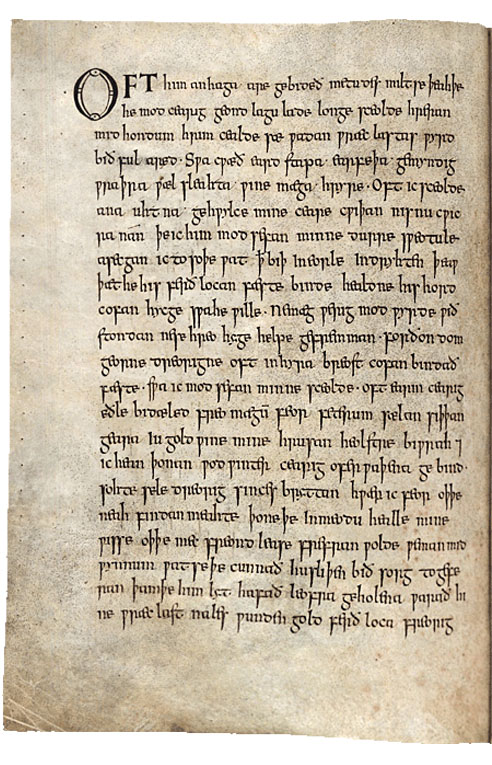Sweet renders aræd as "inexorable", Michael Alexander as "set fast". I assume that they connect the word with rædan "advise", but also "agree on, decree". Bruce Mitchell says of the prefix ā- "sometimes it seems to have no effect on the meaning".
Hm... according to Wiktionary, the prefix "
ā" functions to form "words with the sense
from,
away,
off,
out". Such as the "a" in Modern English "
arise" (rise
from). If the word being connected with is "
rædan", as you suggest (Modern English's words "read" and "rede"), then it
kind of does seem to function... I mean, conviction comes
from interpreting certain things, which is kind of related to advice, agreements, etc; and the Old English word apparently did sometimes refer to reading ("interpreting letters.") And Wyrd is connected to Runes. So I guess being "aræd" may have been meant to imply steadfastness derived from being wise/well-learned or well-advised...
But I'm pretty sure Old English had plenty of words that could more clearly convey such ideas.
Argh, none of this is helped by the fact that any "standardized spelling" at the time would have been loose at best, so it's entirely possible that whoever wrote down the poem misspelled a word. And looking at the original manuscript...

Wow, that's pretty. And it does seem like there's a clue, but it kinda would mean I may have noticed something that professionals completely missed, which I find unlikely, but I'll say it anyway just in case. (For anyone following along, the word "wyrd" in the phrase is the last word in the third line, spelled with the letter wynn.) Looking at the way the scribe writes the letters "a", "e", "r", and "æ", it almost looks like the word is being spelled "ared", not "aræd." According to the Bosworth-Toller Anglo-Saxon Dictionary, "arēd" means "council", and is a variant spelling on "arǣd". And that implies that the phrase is supposed to mean "Wyrd is wholly ... " uh... arēd/arǣd in this context is a noun. No wonder the entry on "ārǣd" in the BT dictionary (defined as "resolute") has a question mark.
http://www.bosworthtoller.com/038874
Then again, maybe the unaccented "a" in "arǣd" is a different prefix altogether, and that the accented one in "ārǣd" is meant to imply the result of good council, i.e., steadfastness in judgment...
Argh! Arǣd bið ful
dyrne, that's for bloody sure...
Typical barbarians — I'll stick to Greek!


